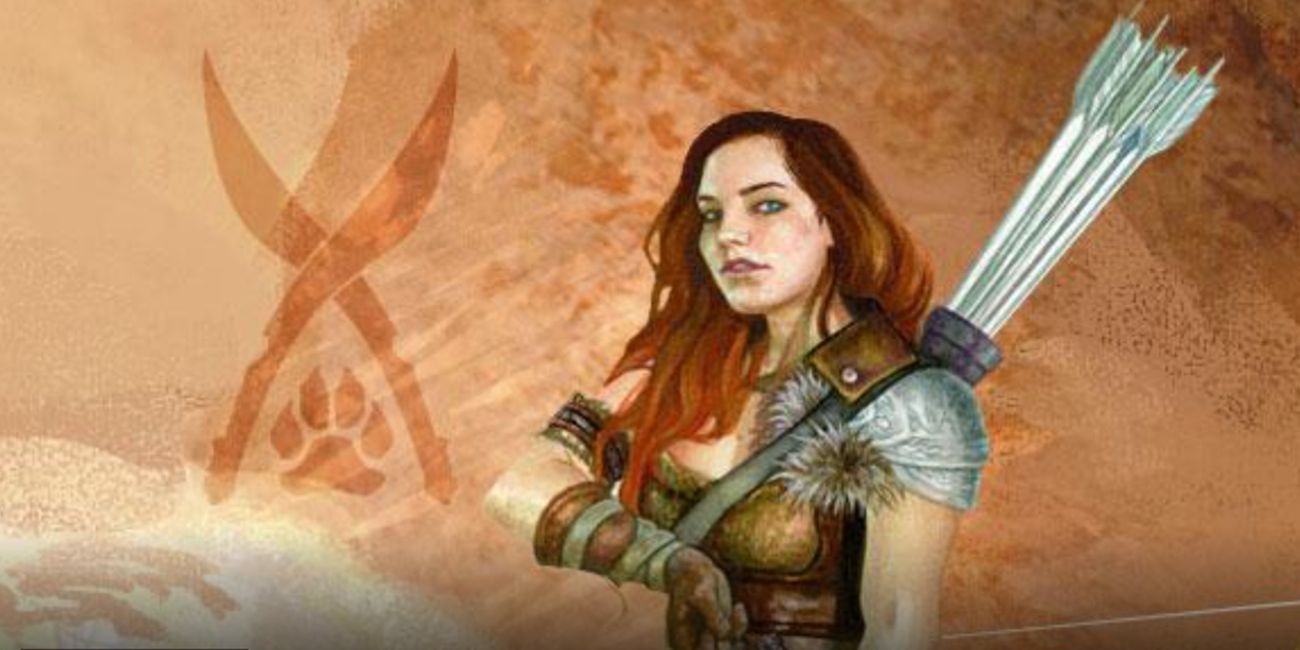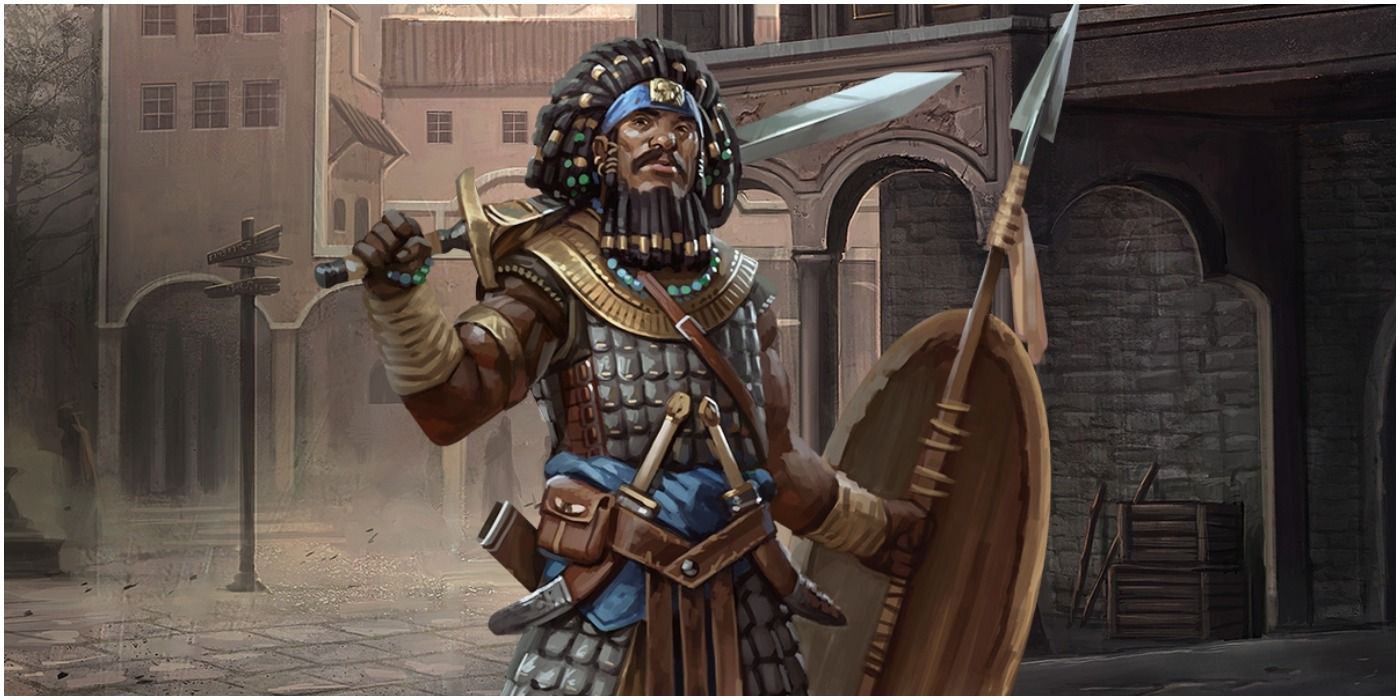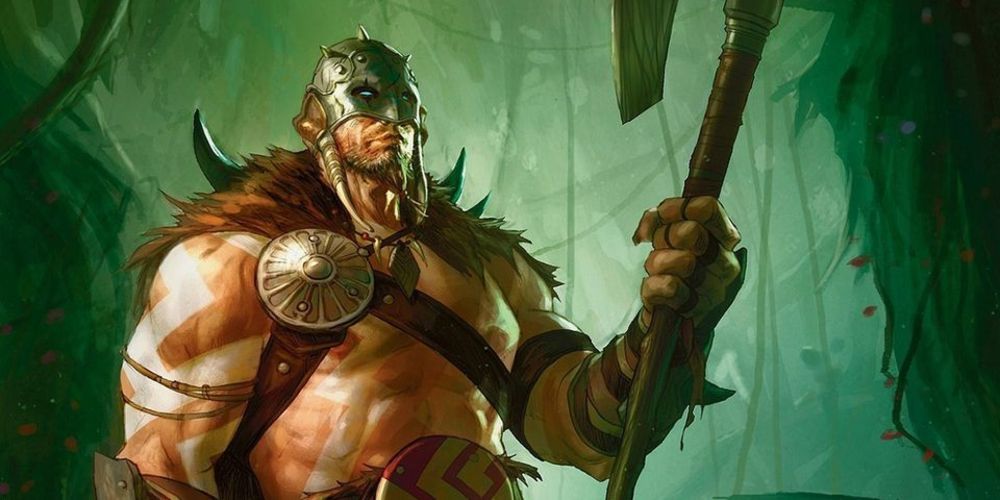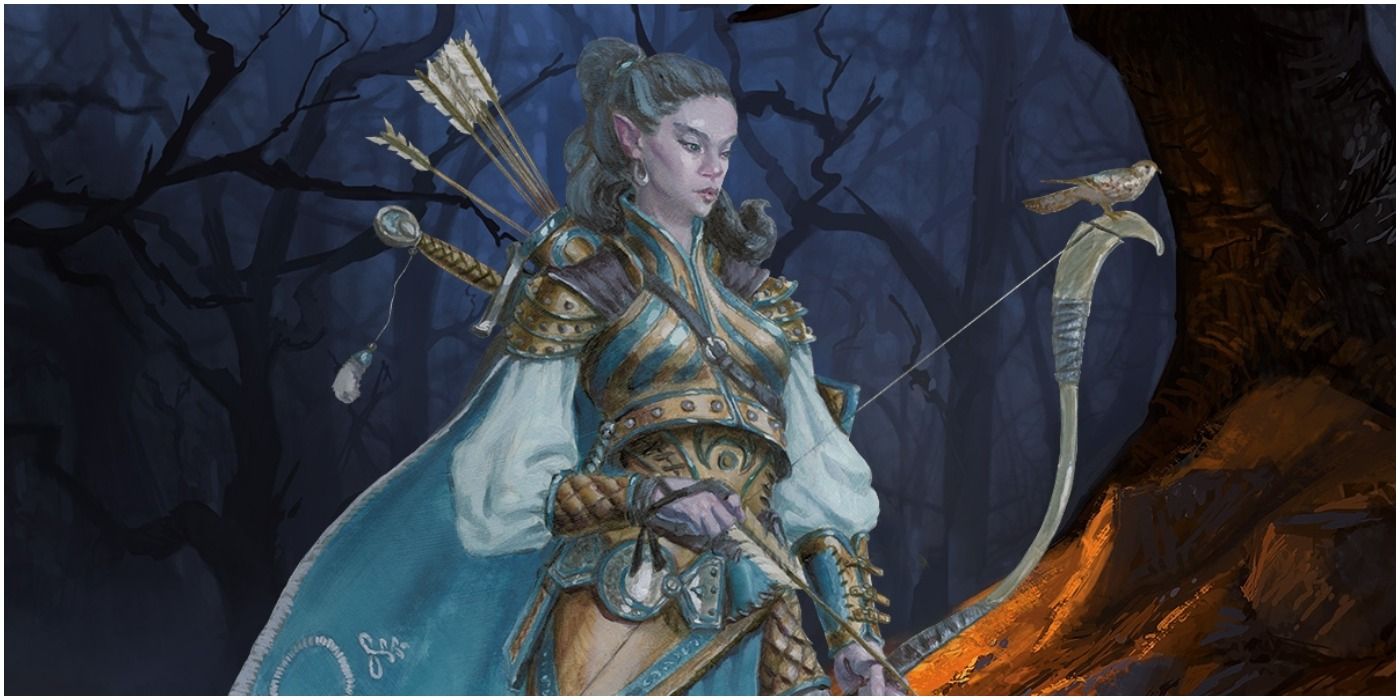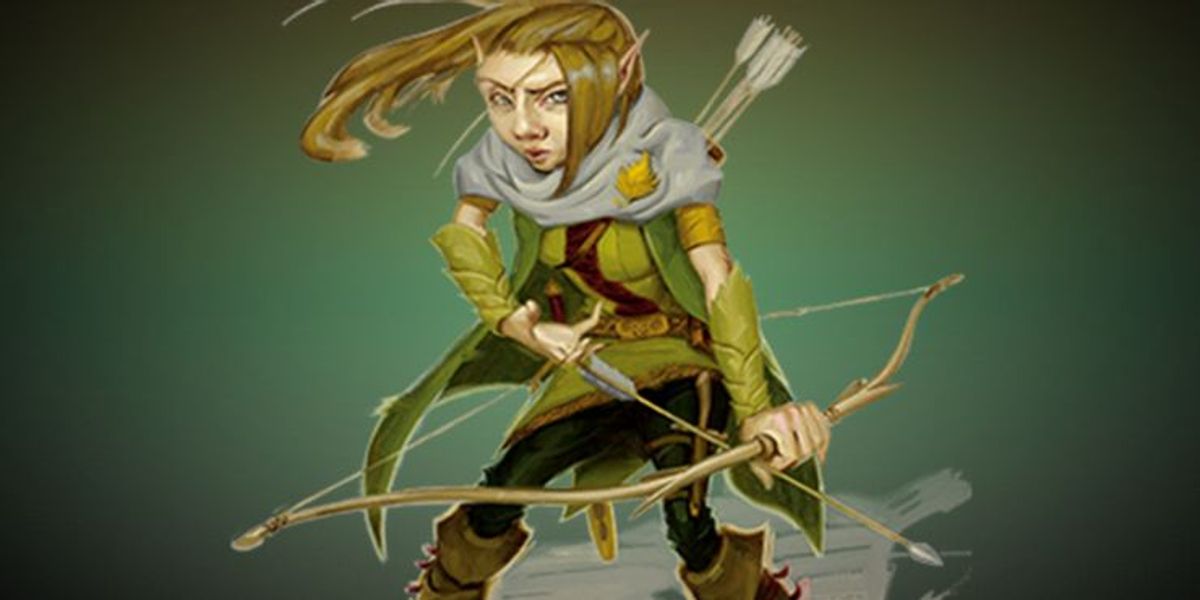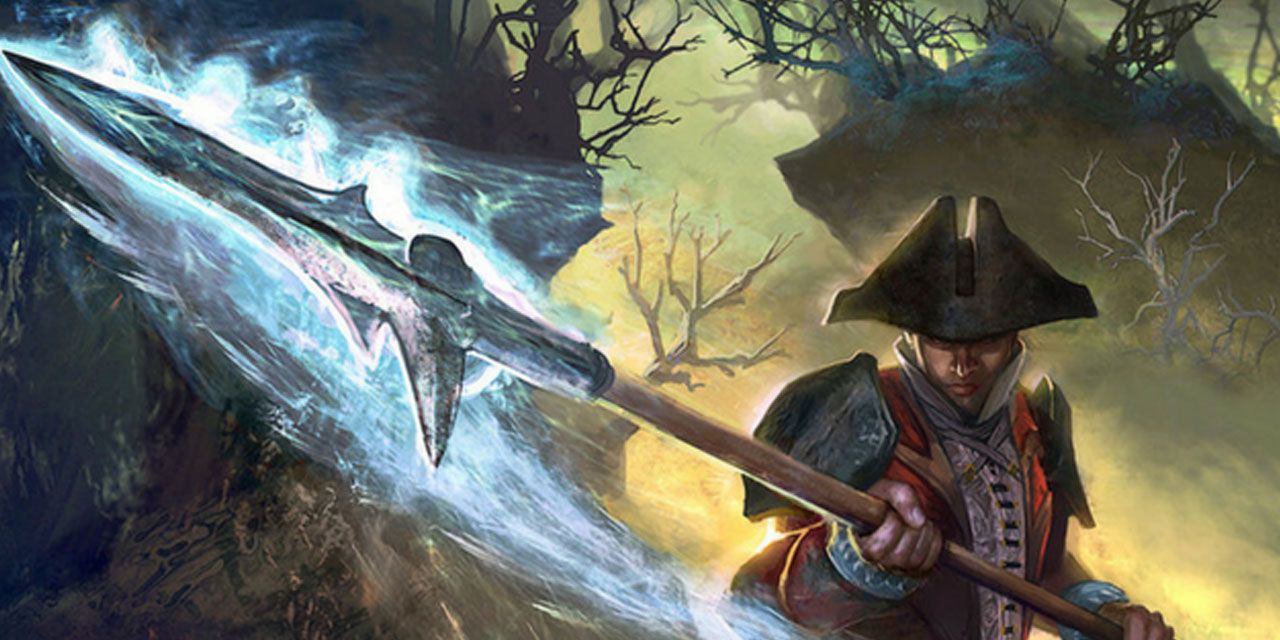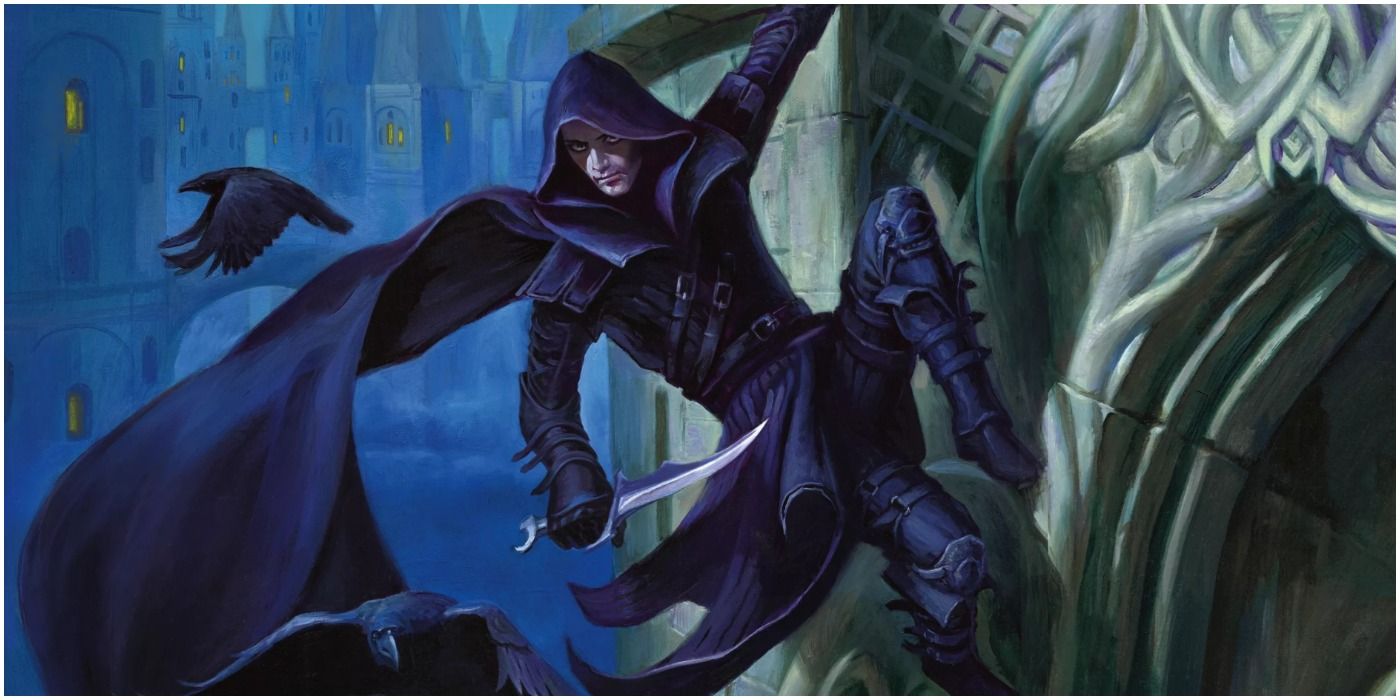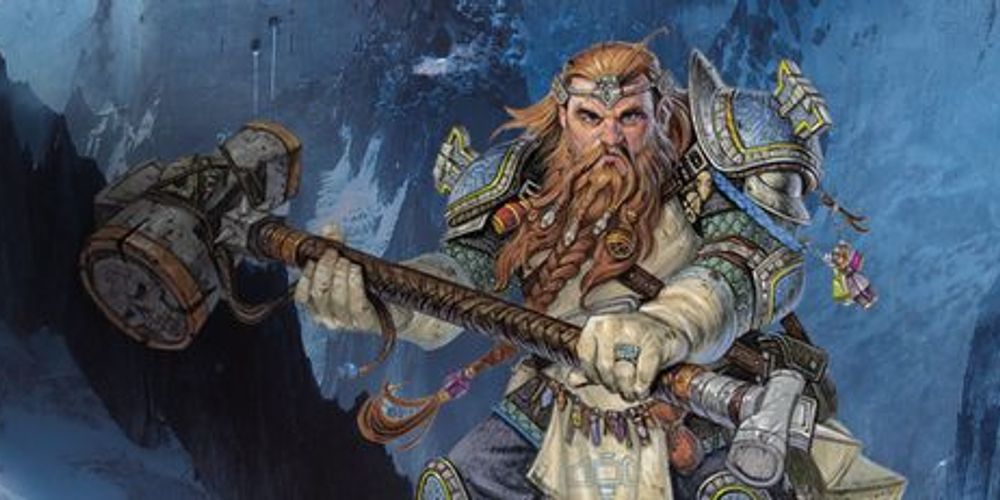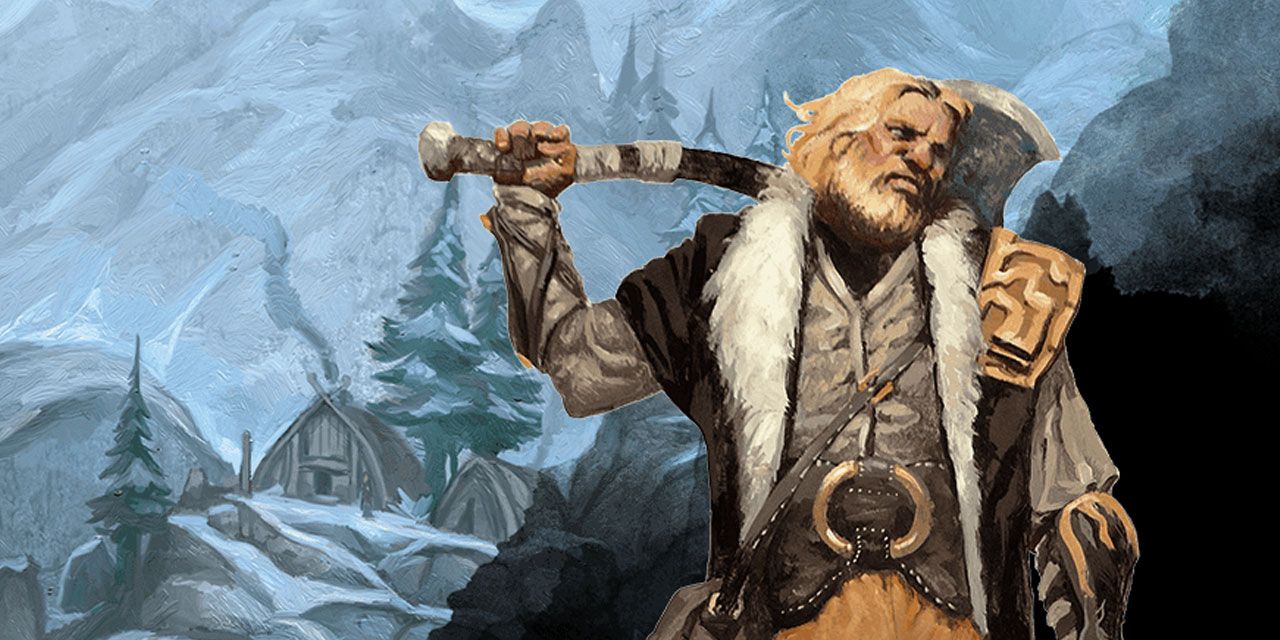Every Dungeons & Dragons player knows the basics of attacking with a weapon: roll a d20 to hit the foe, and on a success, roll again for damage. However, with all the swords, bows, clubs, axes, daggers, and other weapon types available in this classic TTRPG, each one is bound to have its own set of quirks.
Every weapon in D&D has a set of properties, unique attributes that specify how it is wielded. These serve to keep combat interesting and help differentiate weapon types; after all, attacking with a quarterstaff is quite different than attacking with a rapier. Here's what each property means, and how it affects a weapon's use.
Ammunition
This property applies mainly to ranged weapons. Bows need arrows, crossbows need bolts, and slings need bullets — without ammo, these weapons are useless. Thus, players using these weapons will have to keep track of how much and what type of ammunition they're using in battle.
Different campaigns may vary in how strictly they follow this rule: some casual campaigns simplify the process to avoid over-complicating the game for beginners, while others may stick to it strictly. Moreover, dozens of types of ammunition exist for each type of weapon, from icy arrows to explosive slingshot bullets. A DM may allow a player a finite amount of a magical resource, and allow them to default to regular old bolts or arrows once their supply is depleted.
Weapons With This Property
- Simple
- Light crossbow
- Shortbow
- Sling
- Martial
- Blowgun
- Hand crossbow
- Heavy crossbow
- Longbow
Finesse
Weapons with this property can be wielded using either Strength or Dexterity — it's up to the player. The option to use Dex makes them a great option for Rogues or other characters whose Dex is much higher than their strength.
Note that players must use the same stat for both their attack and damage rolls; that is, a character cannot use Strength as their modifier on the first roll, and then Dex when determining damage. They can, however, switch stats between each separate attack attempt.
Weapons With This Property
- Simple
- Dagger
- Dart
- Martial
- Rapier
- Scimitar
- Shortsword
- Whip
Heavy
These large, unwieldy weapons are tough for smaller beings to use. Any Small or Tiny creature will have disadvantage on all attacks that they make with this weapon. For Gnomes and Halflings, it's best to stay away from the weapons listed below.
Interestingly, this weapon property does not apply to any Simple weapons. This is likely because simple weapons are easy to use without training, while the bulk and firepower of Heavy weapons would require the expertise that Martial weapons take.
Weapons With This Property
- Martial
- Heavy crossbow
- Glaive
- Greataxe
- Greatsword
- Halberd
- Maul
- Pike
Light
Even with the Two-Weapon Fighting Feat, dual-wielding can prove tricky in D&D. Just like in real life, characters in the game are either right or left handed, with their non-dominant hand being classified as their off-hand. Any attacks made with this hand will carry penalties — and when using two weapons at once, even main-hand attacks are more difficult. The aforementioned Feat lessens these penalties, but does not completely remove them.
Light weapons alleviate this burden. Small and easy to wield, Light weapons decrease the dual-wielding penalties further. Those who prefer to charge into battle two-fisted may prefer the weapons on the list below.
Weapons With This Property
- Simple
- Club
- Dagger
- Handaxe
- Light hammer
- Sickle
- Martial
- Scimitar
- Shortsword
Loading
Though not all Ammunition weapons have the Loading property, all Loading weapons are also Ammunition weapons. In D&D combat, some weapons take some time to reload and can't fire rapidly. Thus, when using the items below, a character may only fire their weapon one time per action, bonus action, or reaction.
This applies despite feats or class features that might otherwise allow a character to attack more than once. For example, a Fighter who can usually attack twice per action may still only fire their hand crossbow once, as they did not have time to reload. They may, however, take their second attack with a different weapon.
Weapons With This Property
- Simple
- Light crossbow
- Martial
- Blowgun
- Hand crossbow
- Heavy crossbow
Range
There's a limit to just how far ranged and thrown weapons can reach, and this property tells players how far they can aim effectively. In a ranged or thrown weapon's stat block, players will see two numbers in parentheses. The first indicates the weapon's normal range, while the second indicates its long range (both measured in feet). Any attack beyond the normal range will have disadvantage, and it is impossible to make an attack beyond the long range.
Every weapon that can make a ranged attack has this property, and the specific numbers differ by weapon type. For example, a light crossbow has a range shown as (80, 320). This means that when attacking a foe more than 80 feet away, the player will have disadvantage. If an enemy is more than 320 feet away, the player cannot make an attack with that weapon.
Reach
When attacking with these weapons, a character has an additional 5 feet added to their typical reach. This allows the player to make a melee attack against an enemy who is further away, and increases the range for opportunity attacks as well.
Like with the Heavy property, weapons with Reach are exclusively Martial weapons, likely because they are larger and a bit more unwieldy.
Weapons With This Property
- Martial
- Glaive
- Halberd
- Lance
- Pike
- Whip
Thrown
Though melee weapons are typically intended for up-close-and-personal combat, some can be effective from a distance as well, depending on the character's throwing arm. If a melee weapon has the Thrown property, a character may use it to make a ranged attack to strike a character at a distance.
As with ranged weapons, every weapon with the Thrown property has a pre-determined range in which it is effective. Additionally, bear in mind that once thrown, the player cannot use that weapon again until they retrieve it.
Weapons With This Property
- Simple
- Dagger
- Handaxe
- Javelin
- Light hammer
- Spear
- Dart
- Martial
- Trident
- Net
Two-Handed
If it wasn't obvious from the title, this property indicates that a weapon will always require two hands to wield. Thus, a character cannot dual-wield with any of the weapons on this list, nor can they protect themselves with a shield and use a two-handed weapon at the same time. They also cannot attack with these weapons if they are unable to use one hand for any reason.
As players may notice, there's a lot of overlap between weapons with the Two-Handed and Heavy properties, considering that it takes two hands to balance the size and weight of a Heavy weapon.
Weapons With This Property
- Simple
- Greatclub
- Light crossbow
- Shortbow
- Martial
- Glaive
- Greataxe
- Greatsword
- Halberd
- Maul
- Pike
- Heavy crossbow
- Longbow
Versatile
Players can choose to wield versatile weapons with either one or two hands. Choosing the two-handed approach typically results in a harder hit; however, the option for one-handed wielding allows players to dual-wield, use a shield, or attack with their Versatile weapon even when one hand is incapacitated (e.g.; tied up or injured).
Weapons With This Property
- Simple
- Quarterstaff
- Martial
- Battleaxe
- Longsword
- Trident
- Warhammer

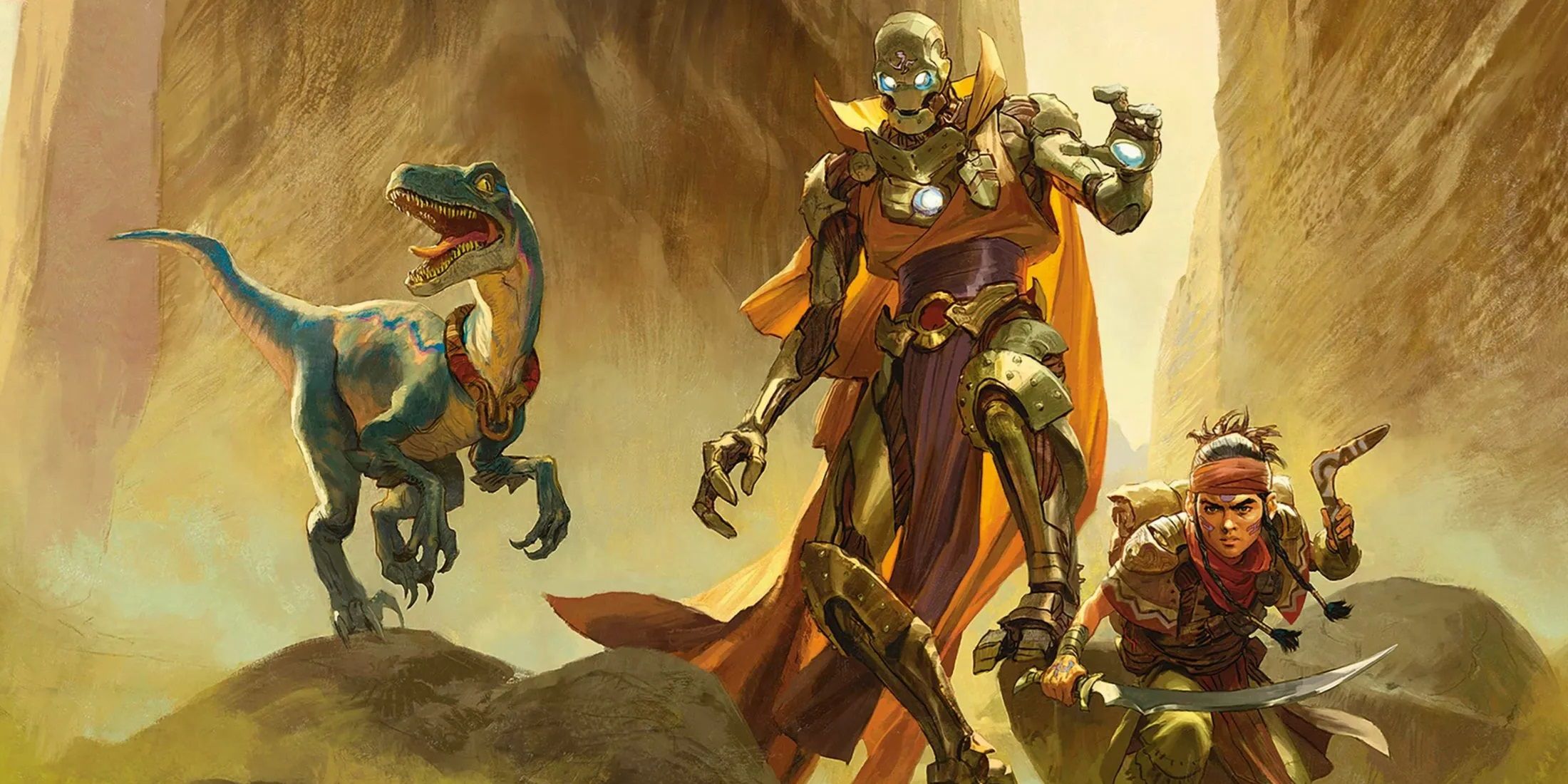
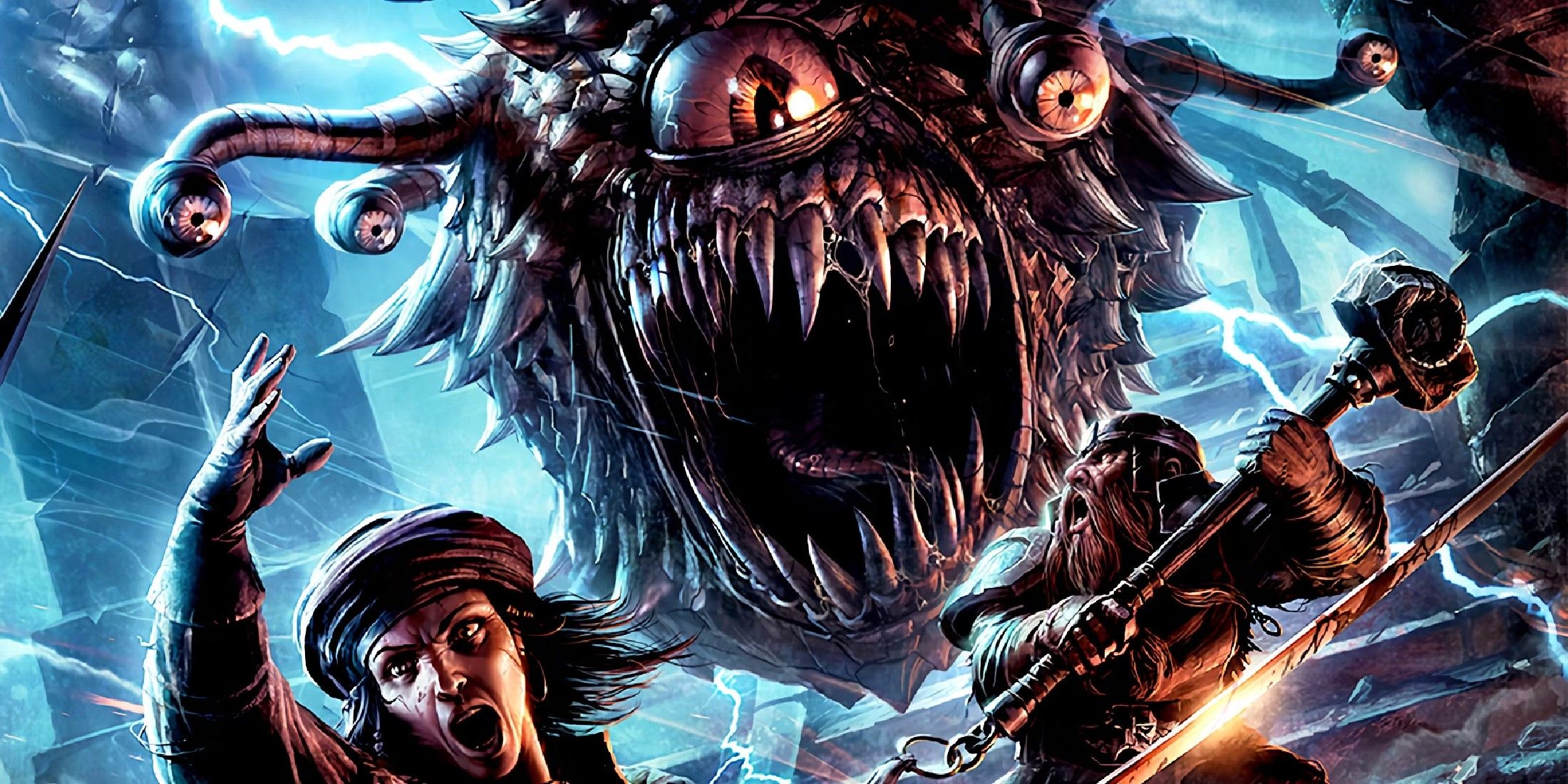

.jpg)
